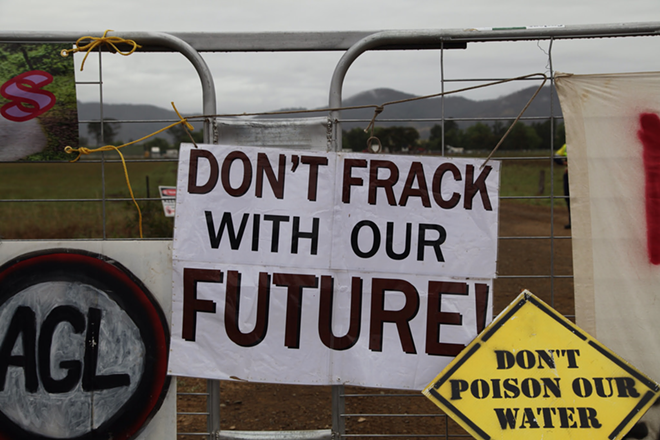A statewide fracking ban in Florida is by no means a done deal, but such a proposal did clear one hurdle on Monday.
Senate Bill 462 unanimously passed the Florida Senate Environmental Preservation and Conservation Committee, but a companion bill in the State House — a body typically less open to pro-environment policies — still has a long way to go.
Still, proponents of the ban heralded the small victory.
“As a sixth generation Floridian and an avid outdoorsman, I believe we must act in our state’s best interest to protect our natural and unique environment,” said State Senator Dana Young (R-Tampa), the bill's senate sponsor, in an emailed statement. “We cannot risk our drinking water and our one-of-a-kind natural resources; therefore, I am proud to lead this change on behalf of my constituents and all Floridians.”
There are myriad reasons environmental advocates want lawmakers to say no to fracking. The process involves using untold volumes of pressurized water — a resource that's not as abundant as most people might think — to crack open layers of rock to access to the oil and gas beneath it. These companies can mix potentially harmful compounds in with the water, and likely wouldn't have to disclose what they're using. Most of Florida's water supply comes from underground where it travels through a thick layer of porous limestone, which could easily be contaminated by wastewater that results from fracking. Even in the age of Trump, the U.S. Environmental Protection Agency has expressed concerns about its impacts.
Yet some state lawmakers, namely certain Republicans who say energy independence is their big concern, claim they want to legalize fracking so they can study, then regulate it.
To a growing number of people from across the political spectrum, that doesn't make any sense, given the practice's apparent risks.
“Senate Bill 462, a legislative priority of mine, is a vital step in the right direction. The dangerous practice of fracking not only risks Florida’s fragile environment but can lead to ground water contamination and, I cannot stress enough the immediate need for this legislation to protect our state,” Young continued.
Environmental groups heralded the step Monday.
“The Senate is moving ahead with common sense legislation to protect Florida’s most prized resource, our water, from the dangers of fracking," said Jennifer Rubiello, director of Environment Florida, in a media release. "We look forward to its passage through the Senate."
Jonathan Webber, deputy director of, Florida Conservation Voters, applauded Young's success with the bill thus far and expressed optimism over the its next committee hearing. But his optimism was a cautious one, given the challenges the bill would face afterward — not to mention its House companion's chances actually of being heard.
"In the House, Speaker Richard Corcoran and the rest of his leadership team should take note," Webber said. "FCV looks forward to working with Senator Young and chair of the bill’s next committee stop, Senator Lauren Book, as this legislation continues to advance.”
Rubiello called on Corcoran to do the opposite of what the House has done with fracking ban proposals in past years — take it seriously and have the chamber vote on it.
"It’s time for Speaker Corcoran and the House to stop twiddling their thumbs and give the fracking ban a fair hearing," Rubiello said. "Floridians across the state are counting on them to do so.”


